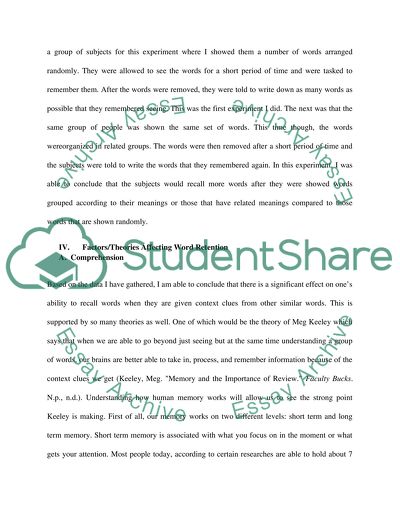Cite this document
(“The Effect of Context Clues in Word Recall Term Paper”, n.d.)
Retrieved from https://studentshare.org/psychology/1450791-the-effect-of-organizing-words-of-not-organizing
Retrieved from https://studentshare.org/psychology/1450791-the-effect-of-organizing-words-of-not-organizing
(The Effect of Context Clues in Word Recall Term Paper)
https://studentshare.org/psychology/1450791-the-effect-of-organizing-words-of-not-organizing.
https://studentshare.org/psychology/1450791-the-effect-of-organizing-words-of-not-organizing.
“The Effect of Context Clues in Word Recall Term Paper”, n.d. https://studentshare.org/psychology/1450791-the-effect-of-organizing-words-of-not-organizing.


